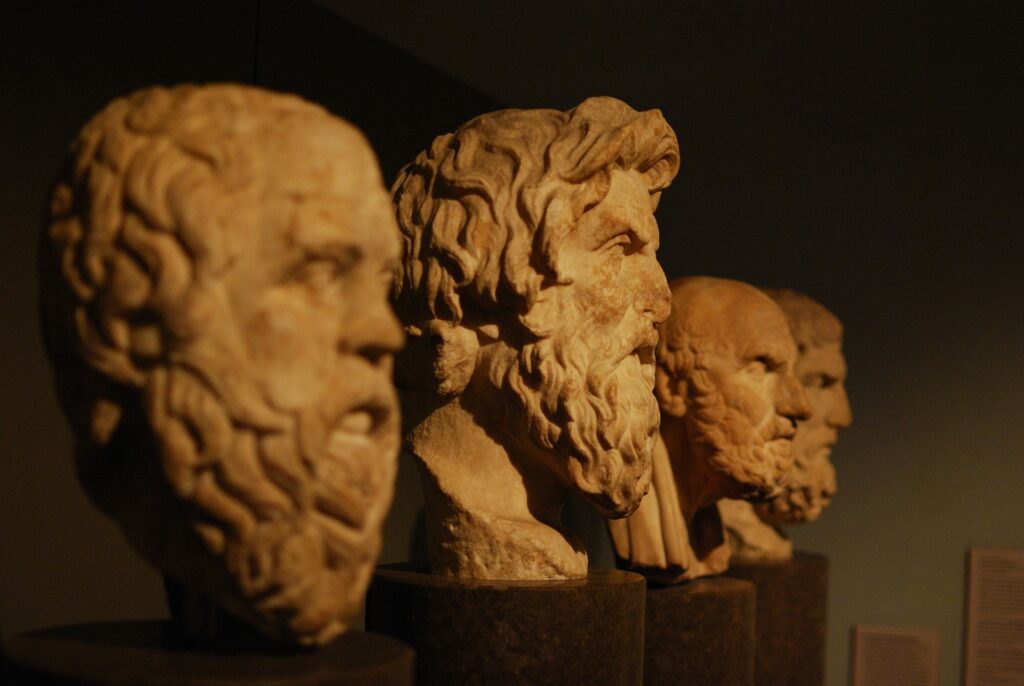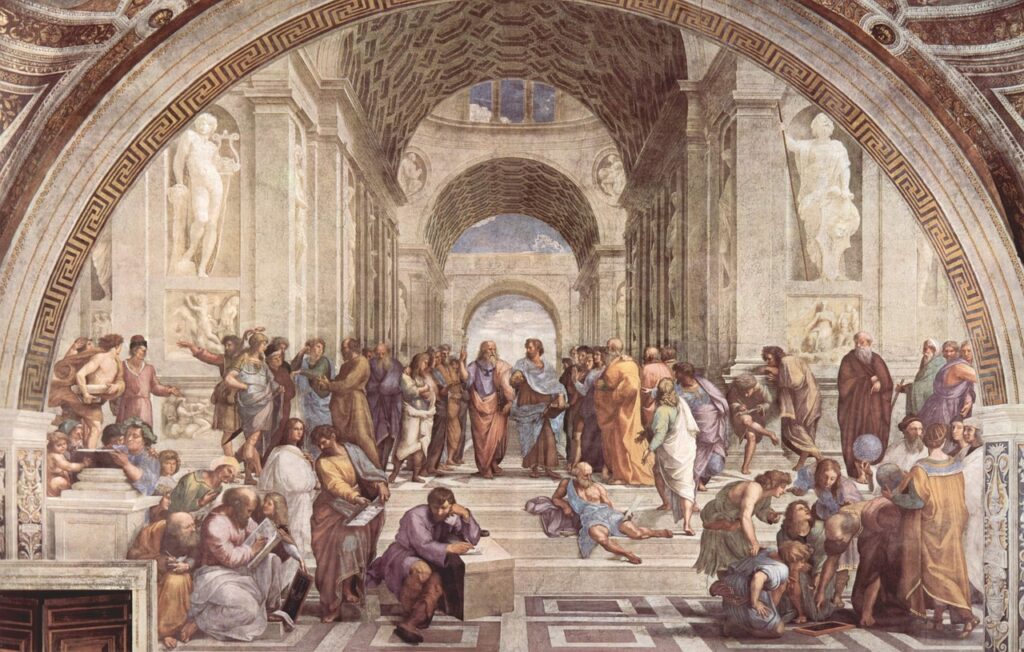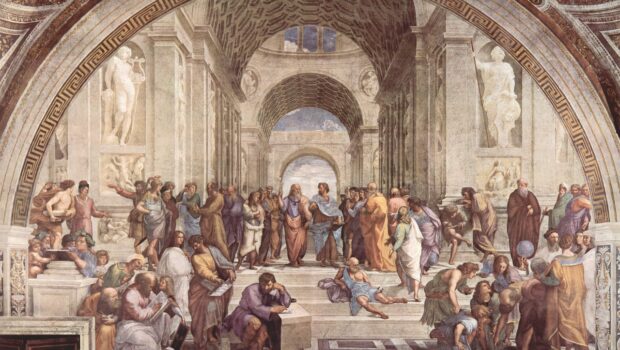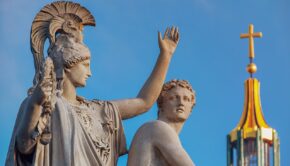Founding Philosophies: Examining Declarations in History
In the annals of history, the Declarations of Independence and the Rights of Man stand as beacons of liberty, conceived amidst the tumult of revolution and steeped in the Enlightenment ideals that reshaped the world. At their core, these declarations embody the profound philosophical musings of thinkers who dared to challenge the status quo and envision a society founded on principles of equality, justice, and human dignity. As we embark on a journey through the intellectual landscape of the Enlightenment, let us delve deep into the writings of John Locke, Jean-Jacques Rousseau, Montesquieu, Voltaire, Thomas Paine, Benjamin Franklin, and their American counterparts, to unravel the philosophical threads that weave through these seminal documents.

John Locke’s Influence
At the heart of the Declaration of Independence lies the concept of natural rights, a notion championed by the English philosopher John Locke. In his seminal work, “Second Treatise of Government,” Locke posited that individuals possess inherent rights to life, liberty, and property, which precede and supersede the authority of any government. Jefferson’s immortal words, “We hold these truths to be self-evident, that all men are created equal, that they are endowed by their Creator with certain unalienable Rights,” echo Locke’s conviction that government exists to safeguard these fundamental liberties. Locke’s philosophy profoundly influenced the Founding Fathers of the United States, shaping the principles upon which the nation was founded.
Jean-Jacques Rousseau’s Vision
Rousseau’s seminal work, “The Social Contract,” served as a cornerstone for the French Declaration of the Rights of Man and of the Citizen. Rousseau articulated the concept of the general will, wherein the collective interests of society should guide the actions of government. This notion finds resonance in the declaration’s assertion that “the aim of all political association is the preservation of the natural and imprescriptible rights of man,” reflecting Rousseau’s belief in the sovereignty of the people and the legitimacy of their consent.
Montesquieu’s Doctrine of Separation of Powers
The principle of the separation of powers, articulated by Montesquieu in “The Spirit of the Laws,” profoundly influenced the structure of modern governance. Montesquieu advocated for a system of checks and balances, wherein distinct branches of government would serve as counterweights to prevent tyranny and abuse of power. This principle finds expression in both the Declaration of Independence and the French Declaration of the Rights of Man, which affirm the importance of limited government and the rule of law.
Voltaire’s Defense of Reason and Tolerance
Voltaire, the preeminent champion of reason and tolerance, left an indelible mark on the Enlightenment with his impassioned defense of freedom of thought and expression. His advocacy for religious tolerance and intellectual freedom reverberates in the declarations’ affirmations of religious liberty and freedom of conscience. Voltaire famously declared, “I do not agree with what you have to say, but I’ll defend to the death your right to say it,” encapsulating his unwavering commitment to the principles of free speech and intellectual inquiry.
Thomas Paine’s Call to Revolution
Thomas Paine’s pamphlet “Common Sense” galvanized the American Revolution with its stirring call for independence from British rule. Paine argued that it was not only the right but the duty of the American colonies to break free from the tyranny of monarchy and establish a democratic republic based on the consent of the governed. His impassioned plea for liberty and self-governance inspired thousands to take up the cause of independence, laying the groundwork for the Declaration of Independence.
Benjamin Franklin’s Pursuit of Knowledge and Virtue
Benjamin Franklin, polymath and statesman, embodied the Enlightenment ideal of self-improvement and civic virtue. His writings, including “Poor Richard’s Almanack” and “The Autobiography of Benjamin Franklin,” extolled the virtues of industry, thrift, and self-discipline, which he saw as essential to the success of the fledgling American republic. Franklin’s commitment to rational inquiry and public service helped to shape the ethos of the American Enlightenment and laid the foundation for a nation built on the principles of reason, liberty, and progress.

As we reflect on the enduring legacy of the Declarations of Independence and the Rights of Man, we are reminded of the profound impact of Enlightenment philosophy on the course of human history. These documents stand as testaments to the power of ideas, the resilience of the human spirit, and the enduring quest for freedom and justice. In the words of Jefferson, “The tree of liberty must be refreshed from time to time with the blood of patriots and tyrants,” we are called to uphold the principles of liberty and justice for all, ensuring that the flame of enlightenment continues to illuminate the path forward.
In tracing the philosophical tapestry of liberty woven into the Declarations of Independence and the Rights of Man, we uncover a rich intellectual heritage that continues to shape our understanding of freedom and democracy. From Locke’s defense of natural rights to Rousseau’s vision of popular sovereignty, from Montesquieu’s advocacy for the separation of powers to Voltaire’s defense of reason and tolerance, and from Paine’s call to revolution to Franklin’s pursuit of knowledge and virtue, these thinkers laid the groundwork for the modern world. As scholars and intellectuals, let us draw inspiration from their timeless wisdom as we navigate the complexities of the present and strive to build a more just and enlightened future.
Header Photo Credit: Image par Welcome to All ! ツ de Pixabay























Merci pour votre commentaire intéressant, Annick ! Désolée pour la réponse tardive. Nous avons dû restructurer notre équipe. Nous sommes…